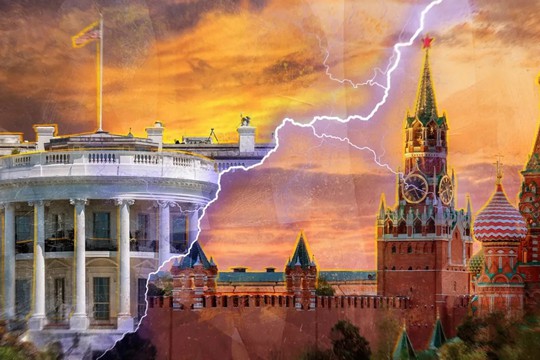None other than NATO chief Jens Stoltenberg said a fortnight ago, one full week after returning from Kiev after talks with Zelensky and his top aides, that NATO deliveries constituted more than 98 percent of the combat vehicles promised to Ukraine, notes M.K. Bhadrakumar, Indian Ambassador and prominent international observer.
Stoltenberg added, “In total, we have trained and equipped more than nine new Ukrainian armoured brigades. This will put Ukraine in a strong position to continue to retake occupied territory.”
US Secretary of State Antony Blinken broadly endorsed what Stoltenberg said, during a joint press conference with the visiting UK Foreign Secretary James Cleverly, while also taking care to add a caveat:
“They (Ukrainian military) have in place… what they need to continue to be successful in regaining territory that was seized by force by Russia… It’s not only the weapons; it’s the training. It’s making sure that the Ukrainians can maintain the systems that we provide them, and it’s important, of course, that they have the right plans, again, to be successful.”
Cleverly agreed with the drift of what Blinken said but gave a political perspective to it. That is perfectly acceptable, since this is a war that is more political than military.
Perhaps, the salience of what these three officials were harping on was that no matter the outcome of the planned Ukrainian offensive, NATO countries “must stay the course and continue to provide Ukraine with what it needs to prevail” in the face of what appears to be a prolonged conflict. Indeed, both Blinken and Cleverly are in sync with what Stoltenberg said.
In fact, even as the two foreign ministers spoke, on the same day, the US announced an additional $1.2 billion in aid to Ukraine intended to bolster air defences and keep up ammunition supplies.
There is a lot of angst in recent weeks as to whether a Ukrainian counter-offensive is indeed in the pipeline. The answer is a categorical ‘yes’. As to its timing, it seems there could be a difference of opinion.
Weather conditions are no longer an insurmountable factor and Zelensky’s western sponsors want him to get going with the offensive — the sooner the better. Their calculus is that the offensive has a reasonable chance of success, which would go a long way in placating the Western domestic opinion that such costly support for Ukraine was after all not going into a bottomless pit.
The offensive is useful politically to shore up European opinion.
The underlying assumption is that the sanctions will weaken the Russian economy and create social disaffection. It only goes to show that no matter the fate of Zelensky’s counter-offensive, there isn’t going to be any let-up in the proxy war against Russia.
Zelensky also has his priorities – his own political survival. He knows that his narrative about an impending Russian defeat, et al, has unravelled and he may become the fall guy in any blame game in the aftermath of a crushing defeat in the crucial weeks or months ahead.
Indeed, the ‘Game of Thrones’ in Kiev is nearing a critical stage. Sensing danger, Zelensky is dithering. He is buying time. But how long can Zelensky push back the mounting US and NATO pressure to launch the offensive?
On its part, Russia is doing brilliantly well to keep its cards close to its chest. Russia has the capability to launch a “big arrow” offensive towards the Dnieper but Kremlin’s preference is to continue to grind down the Ukrainian military — a strategy that proved cost-effective in human and material terms, productive, and is sustainable.
Depending on the trajectory of the Ukrainian offensive, therefore, Russia has the option to switch to a massive attack to pulverise the adversary. Presently, its heavy bombing campaign is intended to create shock and awe in Kyiv and despondency in the European capitals, and to degrade Ukraine’s mobilisation.
The West is kept guessing about the Russian intentions, concludes M.K. Bhadrakumar.
read more in our Telegram-channel https://t.me/The_International_Affairs

 12:00 15.05.2023 •
12:00 15.05.2023 •























